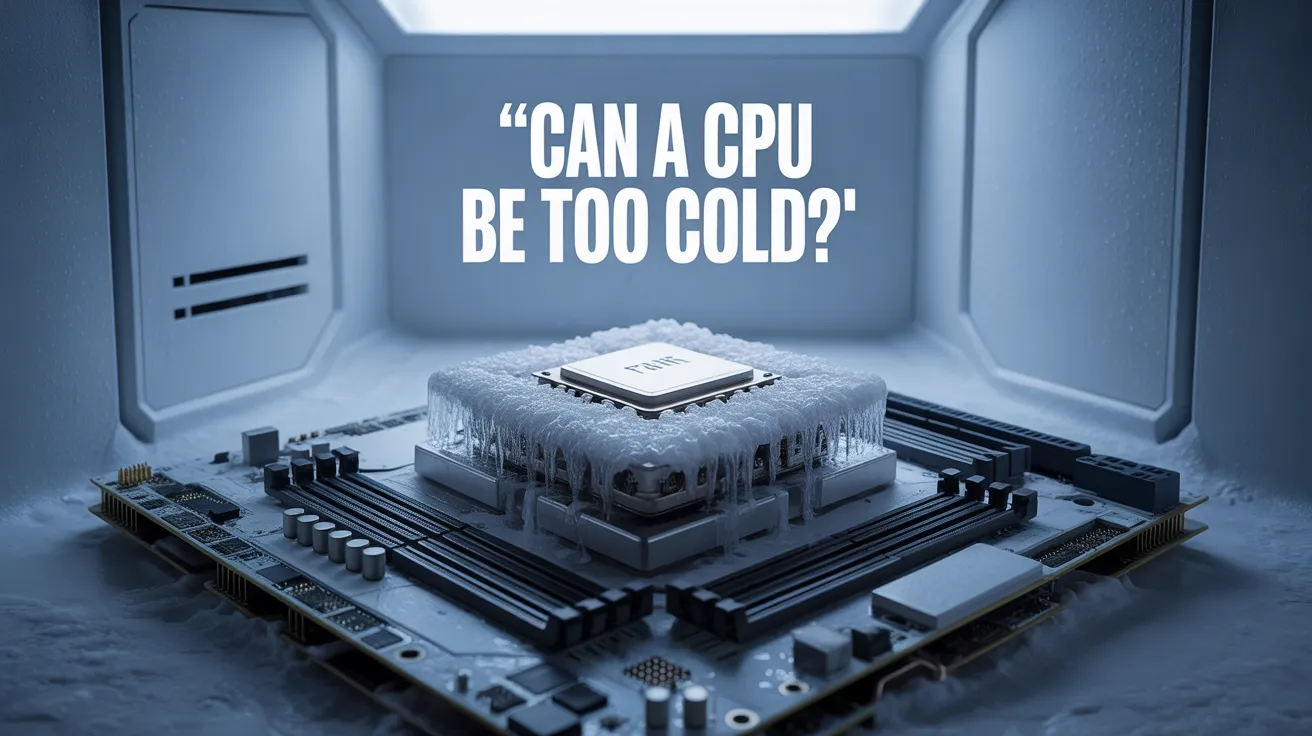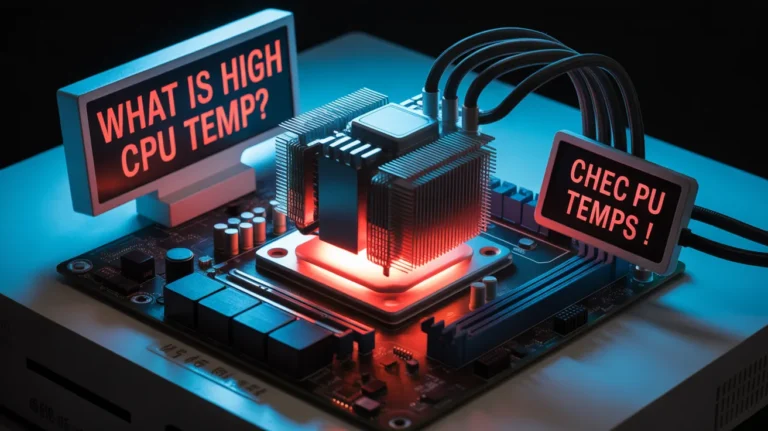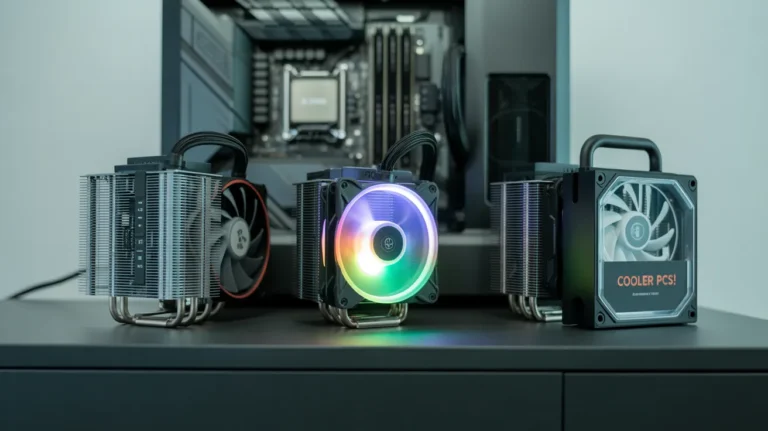Can a CPU Be Too Cold – A Complete Guide for 2025!
Yes, a CPU can be too cold, especially when the temperature is below 0°C. Extreme cold can cause liquid to form inside your computer, possibly damaging the CPU or motherboard. Keeping it cool is good, but too much cold is neither safe nor necessary.
In this guide, we will explain how cold temperatures become a problem, when to worry, and how to keep your CPU at a safe temperature, without getting too hot or too cold.
What Is the Ideal Temperature for a CPU?
A CPU performs optimally when its temperature remains between 40°C and 70°C during regular operation. If you are gaming or doing heavy work, the temperature can rise to 80°C or slightly higher, but it should not remain hot for an extended period.
If the CPU overheats frequently, it can cause your computer to slow down or even damage its components. That’s why keeping the CPU cool is crucial for optimal performance and longevity.
Also Read: Is 150 Degrees Fahrenheit Hot for a CPU? [Quick Answer]
Does Cold Weather Affect CPU Performance?
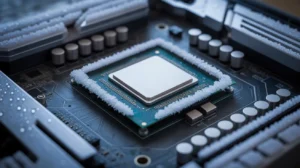
- Cold weather often improves CPU performance because it prevents the processor from overheating.
- Extremely low temperatures (especially below 0°C) can cause moisture or condensation.
- If a computer is quickly moved from a cold place to a warm room, water droplets may form on its surface.
- This moisture can damage the internal parts or cause a short circuit.
- Therefore, using a computer in freezing weather requires extra care to prevent damage.
What Happens When a CPU Operates in Extreme Cold?
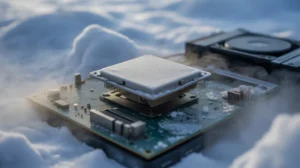
When a CPU operates in icy conditions, it typically remains cool, which enhances its performance. However, frigid temperatures can cause water droplets (moisture) to form inside the computer. This can damage the motherboard or other parts. Also, some CPUs may not start properly if it is too cold. So, extreme cold is not always safe for your computer.
Also Read: Is 4000 RPM Too Low for a CPU Fan? Explained
Why CPUs May Struggle in Sub-Zero Conditions
- CPUs may struggle below 0°C due to:
- Condensation, which can short-circuit components
- Freezing, causing system crashes or instability
- Solder joints are shrinking or weakening, affecting connections
To avoid problems:
- Use your computer in a dry, insulated space.
- Avoid a quick temperature shift.s
- Let your system warm up slowly.
- Use tools like HWMonitor to check temperatures
How to Keep Your CPU Safe in Cold Climates
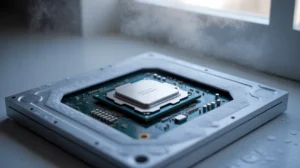
- Use the computer indoors, not outside in freezing temperatures.
- Don’t turn it on right after bringing it inside from the cold; let it warm up naturally.
- Keep your system dry and clean to avoid condensation.
- Ensure that fans and airflow are functioning correctly.
Can a Cold CPU Damage Your System?
Yes, if the CPU gets too cold, moisture can accumulate inside the computer, potentially damaging components like the motherboard. While cool temperatures can improve performance, extreme cold can be detrimental to your system.
How to Monitor CPU Temperature in Cold Conditions
- Use tools like HWMonitor or Core Temp to monitor temperature in real-time.
- Check the temperature in BIOS/UEFI by pressing F2, Delete, or Esc at startup.
- Monitor during heavy tasks and set alerts for extreme temperatures.
- Keep your computer in a dry, well-ventilated area to prevent moisture-related issues.
- Consider external sensors for more accurate readings.
Also Read: Is 50 Degrees Celsius Hot for a CPU? A Detailed Guide
Can Freezing Temperatures Harm Your CPU?
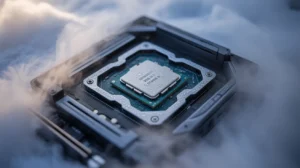
- Yes. Temperatures below 0°C can cause:
- Condensation, damaging components
- Sudden temperature changes, leading to instability
- Shrinkage of parts, which may affect performance
To protect your CPU:
- Keep it in a dry, insulated place
- Avoid sudden changes in temperature
- Let it warm up slowly before turning it on
- Use temperature monitoring tools
How Cold Weather Influences CPU Stability
How cold weather influences CPU stability:
- Condensation: Cold air can cause moisture buildup inside the computer, potentially damaging the CPU.
- Power Supply Issues: Low temperatures can cause unstable voltage, which in turn affects CPU performance.
- Material Stress: Cold temperatures can make components, such as circuits, brittle, risking CPU failure.
- Overclocking Problems: Cold weather can cause overclocked CPUs to become unstable if the cooling system is not correctly balanced.
Tips to maintain CPU stability:
- Keep the computer in a room with a normal temperature (20-25°C).
- Avoid sudden temperature changes to prevent moisture.
- Check cooling systems and ventilation regularly.
Can a CPU Freeze and Still Function Properly?
No. If the CPU or internal parts freeze due to very low temperatures, it can:
- Create moisture that damages parts.
- Cause shrinkage that affects connections
- Lead to system failure or instability.
CPUs need a balanced temperature range to work safely and efficiently.
If you’d like, I can also:
- Turn this into SEO-optimized HTML
- Create a table of contents or FAQ section
- Add internal links or anchor tags.
FAQs:
What Are the Signs of a CPU Being Too Cold?
If a CPU is too cold, your computer may not start correctly or may freeze during use. You may also see errors or system crashes.
Can Freezing Temperatures Affect the Performance of Thermal Paste?
Yes, freezing temperatures can cause thermal paste to harden or crack, which reduces its ability to transfer heat effectively between the CPU and cooler.
Does a Cold CPU Slow Down Performance?
Yes, a very cold CPU can slow down performance because it may not reach the right temperature needed for stable operation or boost speeds.
Is It Safe to Store a PC in a Cold Room?
Yes, it is usually safe to store a PC in a cold room; however, sudden temperature changes can cause moisture, which may damage the components.
Can Moisture Form If a CPU Gets Too Cold?
Yes, if a CPU gets too cold and then warms up quickly, moisture can form, which may harm the motherboard or other parts.
Conclusion:
A CPU cannot handle extreme cold just like it cannot handle too much heat. Below 0°C, moisture may form and damage internal parts. To keep your CPU safe, avoid sudden temperature fluctuations, ensure proper ventilation, and regularly monitor temperatures. Cold is beneficial in moderation, but excessive cold can harm your system instead of helping it.

